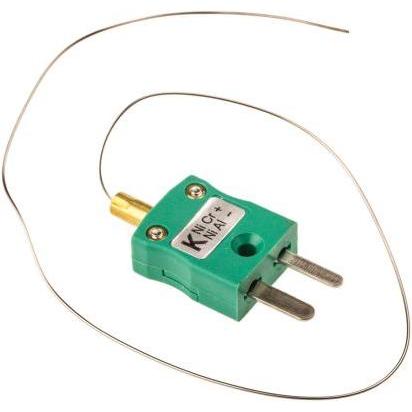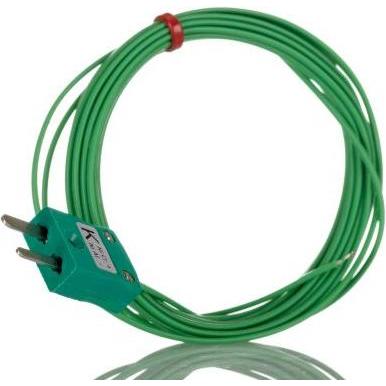

Rs Pro Thermoelement Typ K 250mm Länge 0,5mm DM, Automatisierung
63,22 €
Variante
Das RS Pro Thermoelement Typ K ist ein hochpräziser Temperatursensor, der für eine Vielzahl von Automatisierungsanwendungen konzipiert wurde. Mit einer Länge von 250 mm und einem Fühlerdurchmesser von 0,5 mm bietet dieses mineralisolierte Thermoelement eine zuverlässige Temperaturmessung in anspruchsvollen Umgebungen. Das Fühlermaterial aus Edelstahl gewährleistet eine hohe Beständigkeit gegenüber chemischen Einflüssen und mechanischen Belastungen. Der Mini-Steckeranschluss ermöglicht eine einfache Integration in bestehende Systeme und sorgt für eine sichere Verbindung. Dieses Thermoelement erfüllt die Normen ICE und ist RoHS-konform, was es zu einer umweltfreundlichen Wahl für industrielle Anwendungen macht. Es ist ideal für Anwendungen, die eine präzise Temperaturüberwachung erfordern, und kann Temperaturen bis zu +750 °C messen. - Edelstahl-Material für hohe Beständigkeit - Mini-Steckeranschluss für einfache Integration - Erfüllt ICE- und RoHS-Normen - Geeignet für Temperaturen bis zu +750 °C - Mineralisolierte Konstruktion für verbesserte Leistung.
Deine Shops für beste Deals

Galaxus
Logge dich ein für Coupon Details














